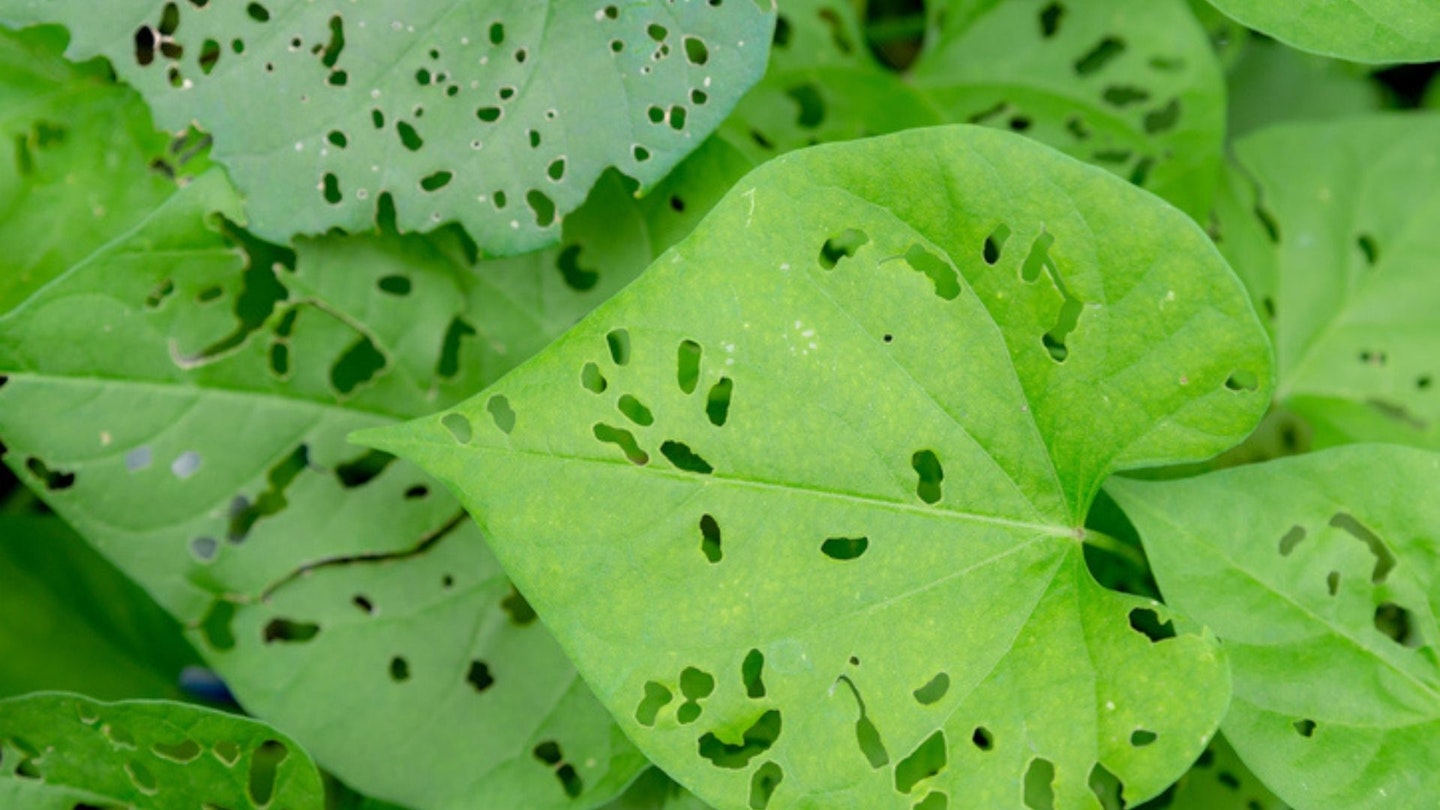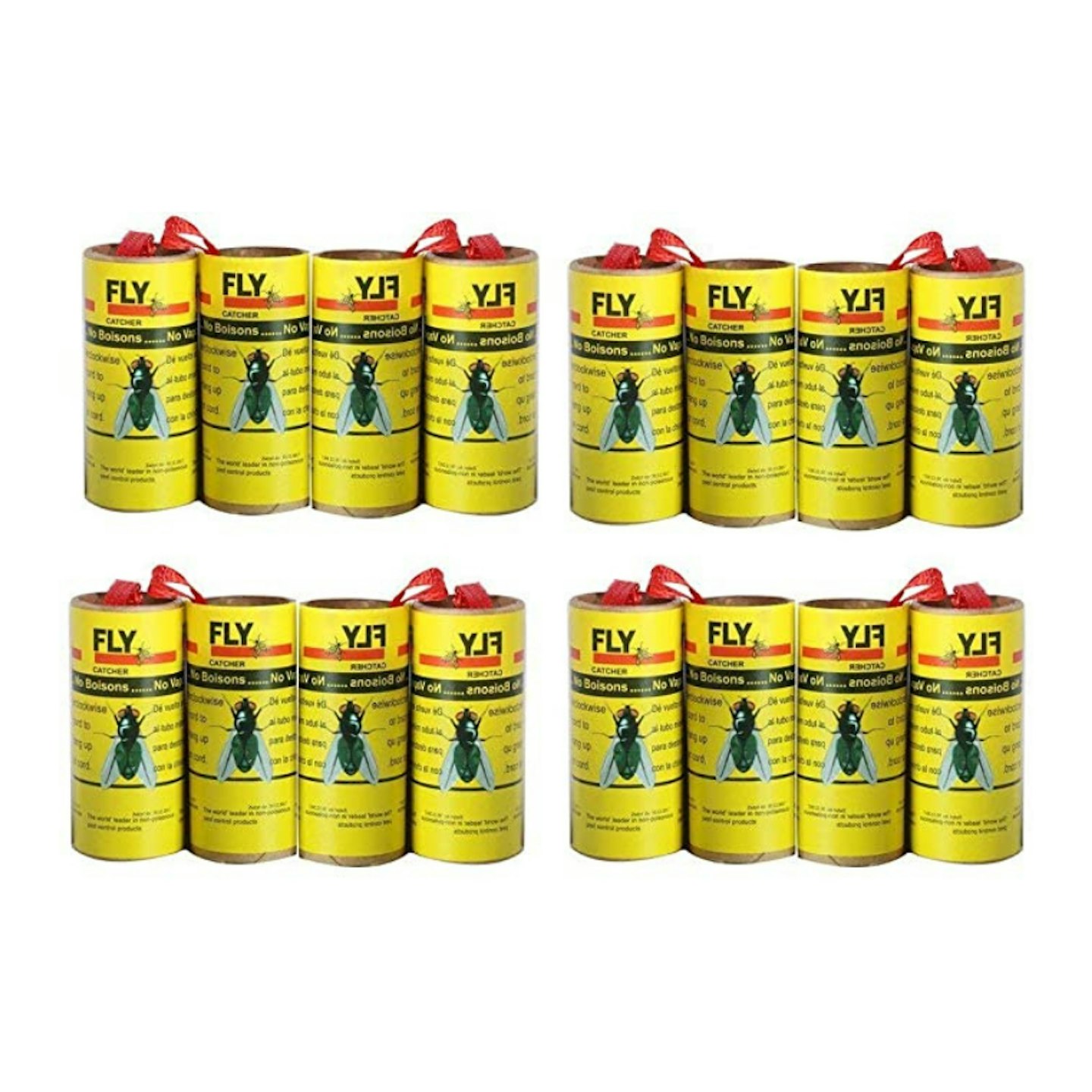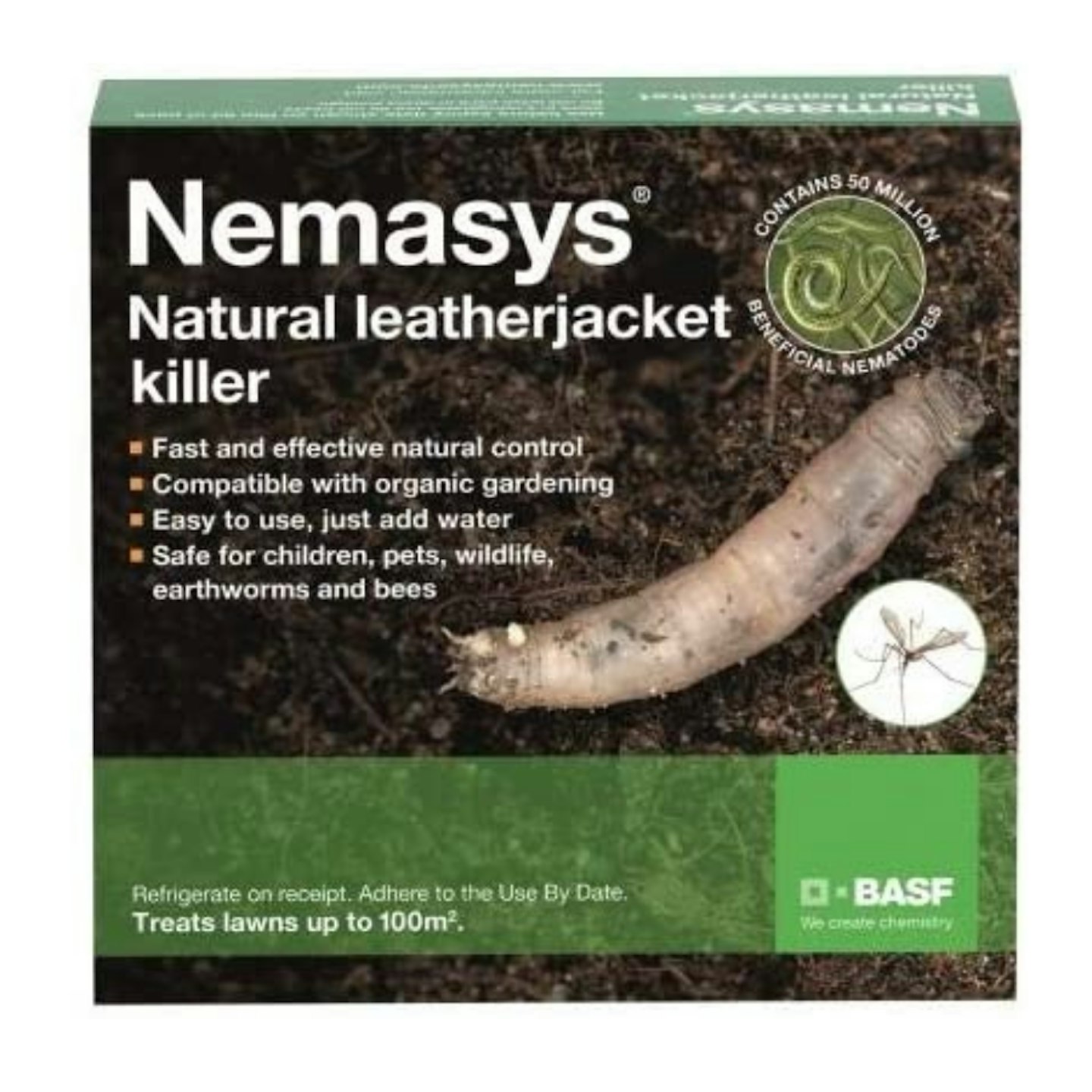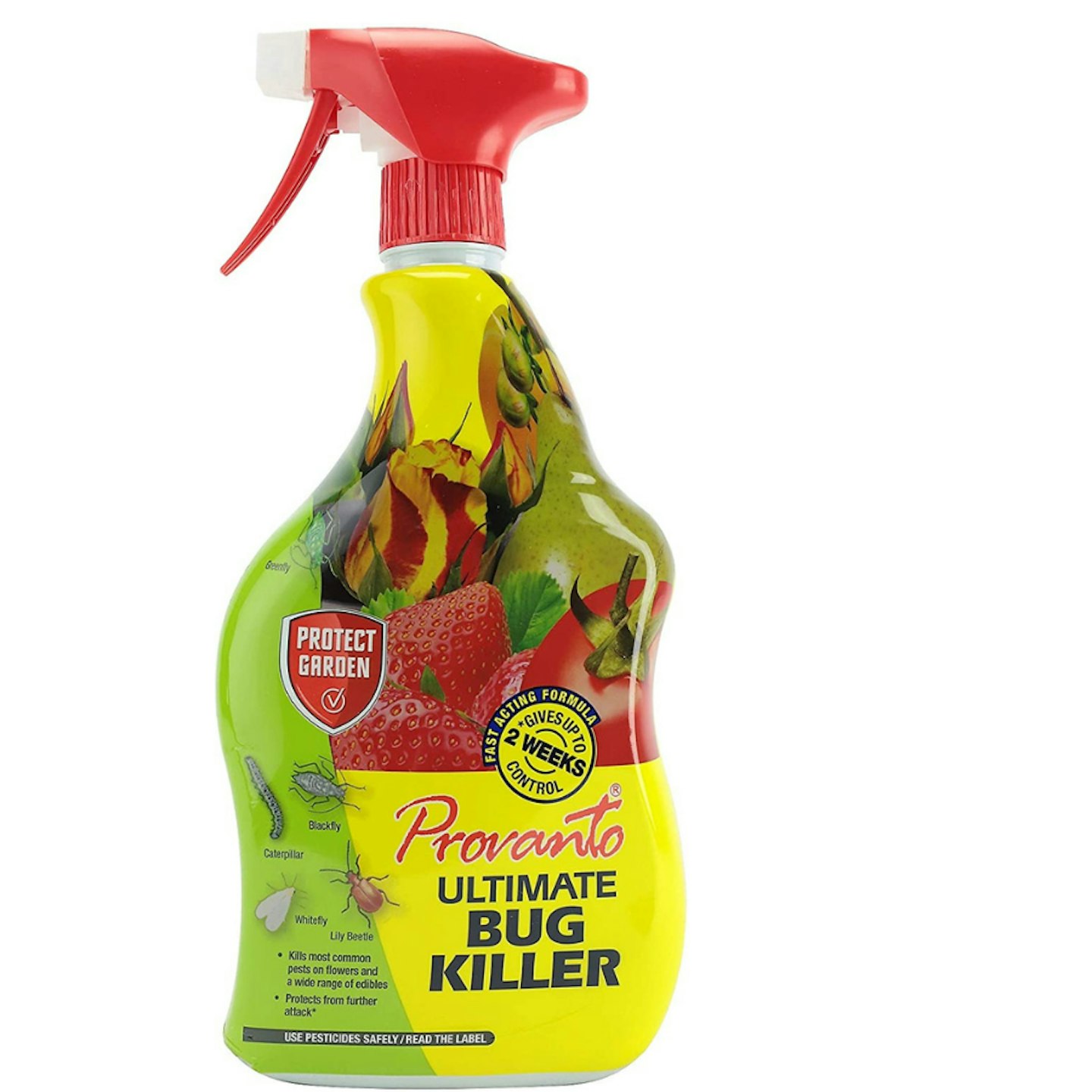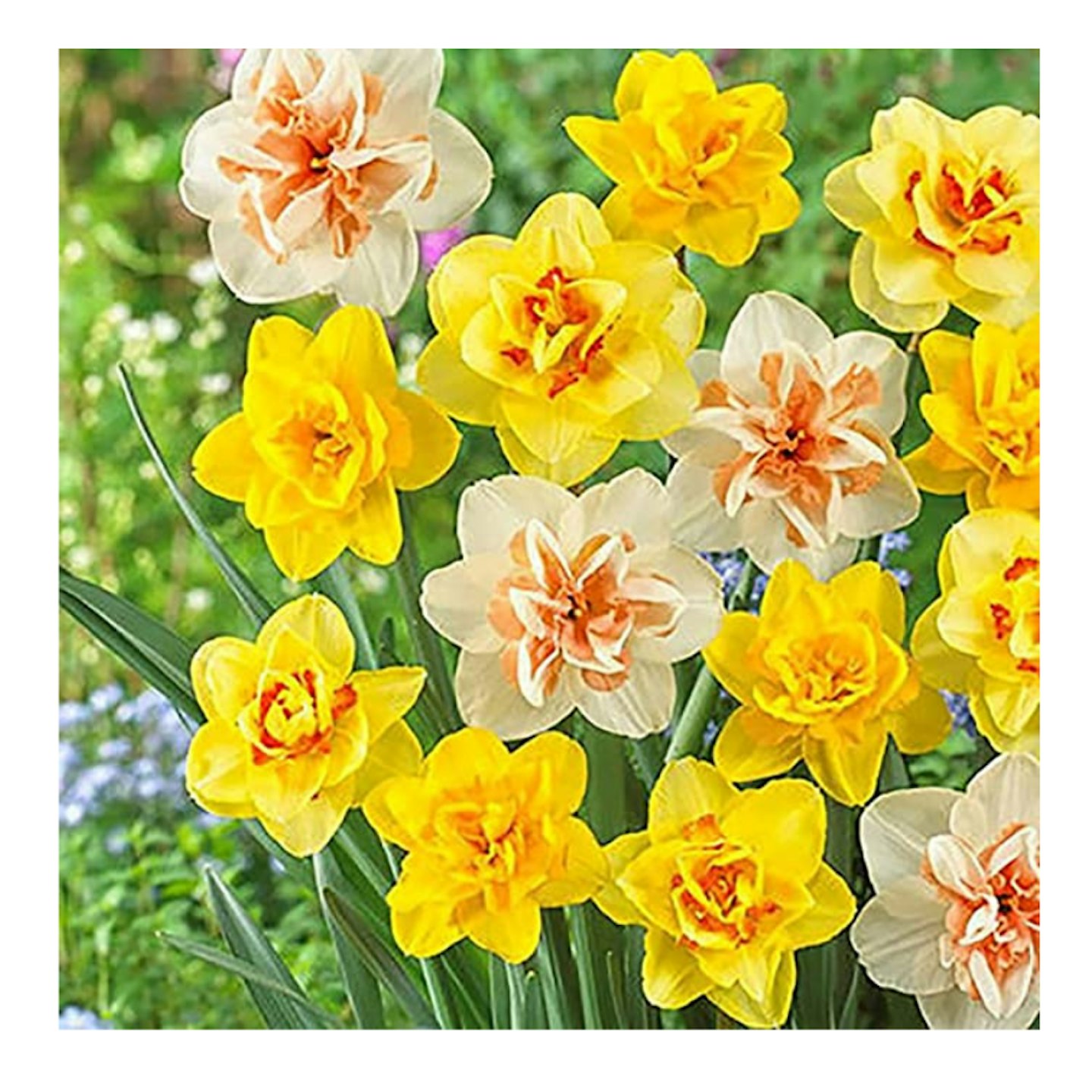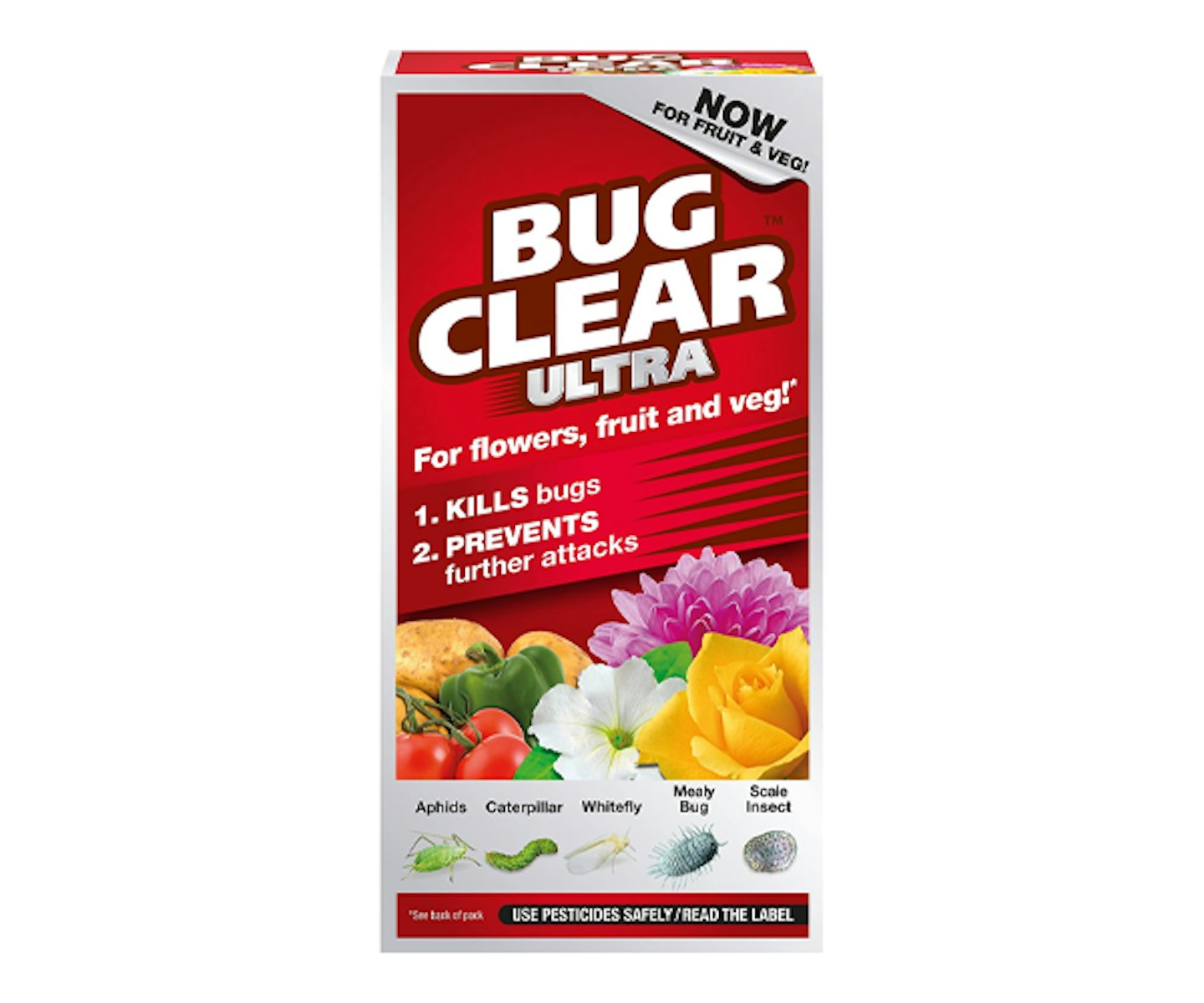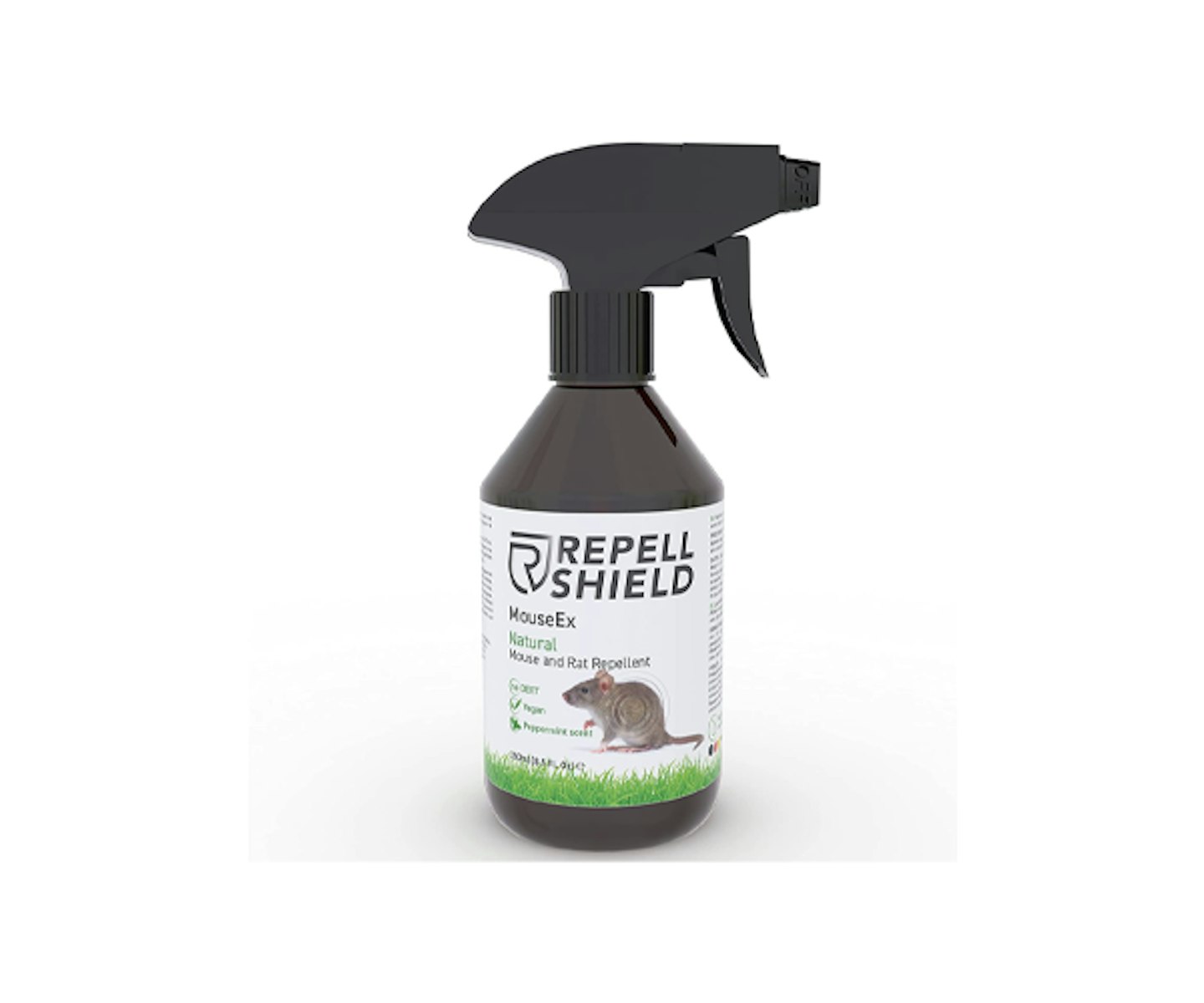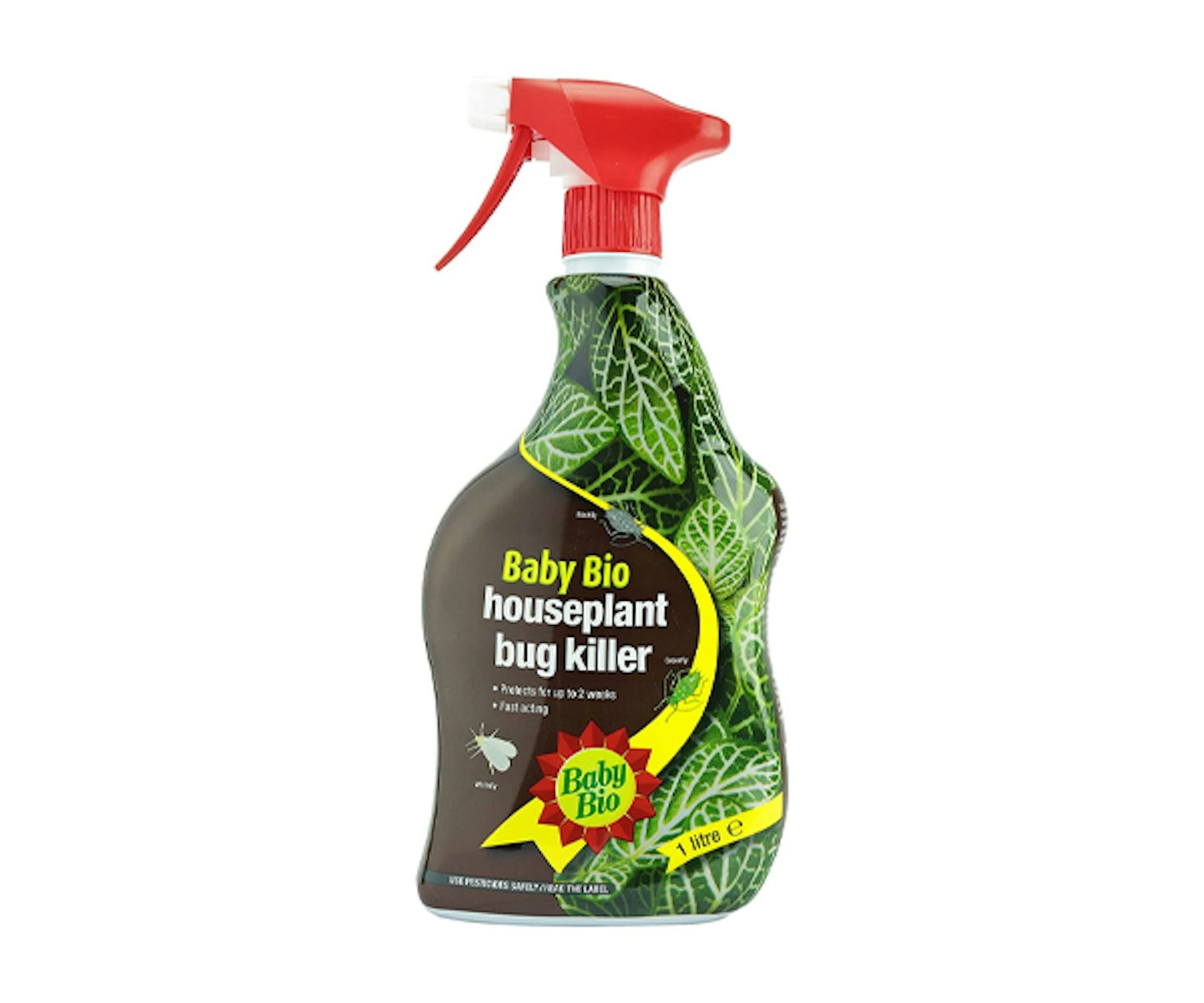We're pretty precious when it comes to our gardens and outside space, and it's easy to see why. We dedicate a lot of time and energy to our gardens, perfecting the flower placements and nurturing them daily. Unfortunately, despite our hard work and efforts, there can be pests that wreak havoc and destroy your plants.
Fortunately, most of the garden pests can be removed and dealt with in non-toxic forms, such as washing insects away with blasts of water, hand-picking them yourself or with alternative pest repellents that won't cause too much damage.
What is a garden pest?
Some wildlife causes more harm than good to your garden and its ecosystem. We've listed below the most common type of pests you can find in your garden and what course of action is best to get rid of them.
Alder leaf battles Treatment: Pesticides
Southern green shield bug Treatment: Put down fly tape around your plants to catch them.
Moles Treatment: Natural repellent, planting marigolds and daffodils.
Aphids Treatment: Using insecticides.
Vine weevils Treatment: Using nematodes.
Lily beetle Treatment: Spraying neem oil, a natural insecticide.
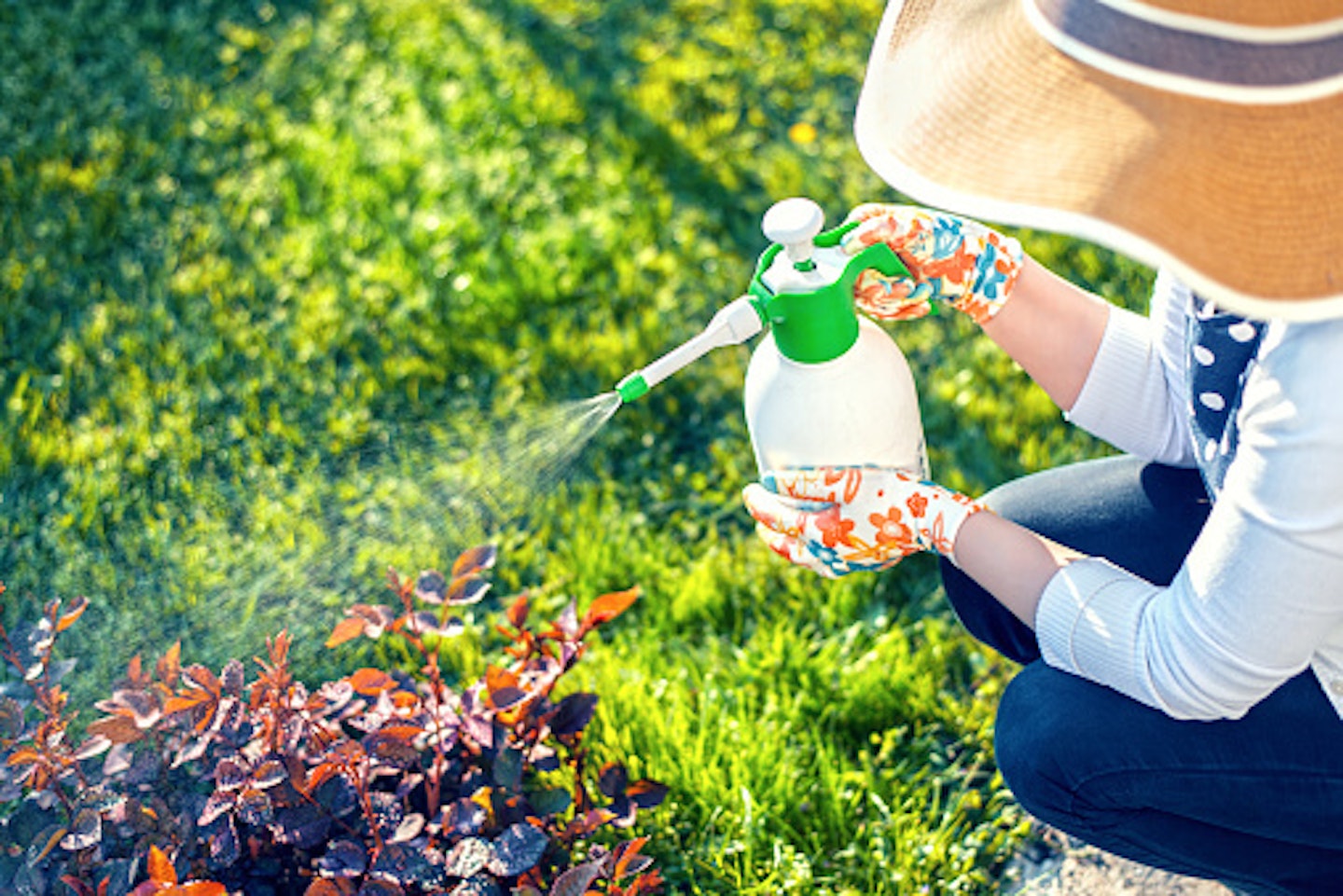
Are slugs and snails pests?
The Royal Horticultural Society announced in early 2022 that it would no longer consider slugs or snails as pests, despite the damage they can cause to a garden.
The leading garden charity has said that it will now do 'positive PR' for the gastropods because they are actually misunderstood, creatures. It follows the government announcement to withdraw the sale of metaldehyde slug control in March 2021, with "advice from the UK expert committee on pesticides and the Health and Safety Executive (HSE) who consider that metaldehyde poses an unacceptable risk to birds and mammals".
Andrew Salisbury, principal entomologist at the RHS, told The Guardian: "The RHS is all too aware of the role that gardens have in supporting biodiversity and as such will no longer label any garden wildlife as pests."
RHS now advises alternative natural options, as well as planting 'sacrificial' plants to protect others from being damaged by slugs and snails.
What to consider when buying garden pest repellents
Plant Diseases
When fruit trees and vegetables look sick, it is necessary to understand the reason before buying any pest repellent. The presence of insects feeding on the plant is the most obvious indicator that a repellent will help.
Plant diseases caused by fungus, bacteria, or viruses can create symptoms that look like insect damage, such as holes in leaves, leaf discolouration or malformation, and stunted growth. Diseases often appear first as discoloured spots on leaves. It is good to consider if your plant is diseased before jumping to conclusions that they have been infested and chewed by insects and pests.
Natural vs Chemical
The active ingredients in organic pest repellents come from natural sources, such as minerals, plants, and bacteria. Chemical insecticides typically work much faster, last longer, and cost less per application than their organic counterparts. However, as these products are created from chemicals - they can also be toxic to people, pets, and the environment if used or stored improperly.
Safety
As expected, gardeners should always read the manufacturer's safety precautions when using pest repellent products. Safety measures may include wearing protective gear like long sleeves, rubber gloves, safety glasses, and a respirator mask. Ensure you know the risks and possible reactions to exposure to the product before use.
As all of these garden pests require different types of treatments, we've listed below the products required for each pest:
The best garden pest repellents
The best garden pest repellent for flies
If you're trying to trap your pests rather than using pesticides or insecticides, this flypaper is ideal for just that. This product comes with 16 different packs, so plenty to use. They are sticky on both sides and can catch flying pests like gnats, flies and mosquitoes. Just pull the paper, hang it using an attached plastic hook, remove it when full, and replace it with a new one.
Review: "These are fabulous. I got these today and, within moments, had my first fly caught. I have used these before when living in France."
The best garden pest repellent for leatherjackets
A more radical method, this nematode treatment is effective and a sure way to get rid of any pesky leatherjackets, slugs or other garden pests. It's easy to apply; simply mix it with water and then apply it to the affected area with a watering can.
Review: "We’ve had trouble for a few years with the lawn looking rather patchy even though we apply fertiliser twice a year. Lately, we have had trouble with birds tearing up the lawn. We then discovered that this was due to the birds feeding on leatherjackets, which damaged the grass's roots. The application was easy with a ‘miracle-grow’ feeder hose pipe attachment as per the instructions. After a few weeks, the grass was much healthier and the trouble with birds had stopped. I will certainly be using this product in future as our lawn really has benefited."
The best quick-action garden pest repellent
This is a brilliant insecticide, effective and incredibly affordable too. It protects the affected areas once sprayed for up to two weeks. The Provanto Ultimate Bug Killer is the go-to bug killer for gardeners and kills most common pests, including Greenfly, Whitefly, Caterpillars, Blackfly, Pea & Bean Weevils, Sawfly, Leaf Beetles, Capsids, Red Plum Maggot and Plum Fruit Moth.
To catch them early, use them at the first sign of infestation, and the best time to apply is early morning or late evening. You can use it indoors or outdoors and on a wide range of edibles.
Review: "I've used many different bug killers, some better than others. This one is excellent. I have already prevented an infestation of whitefly on my currants; one application got rid of the lot. Whitefly curls up the leaves and tends to be early arrivals in dry spells. I will check again in a couple of weeks. This is also great for aphids, black and green, that can destroy fruit production very quickly and eat away ornamental flowers in quick time (roses especially)."
The best natural garden pest repellent for moles
You can plant daffodils and marigolds if you've got a pesky mole problem, but you don't want to use any pesticides or insecticides**.** These are natural repellents and will deter moles from coming in and digging up your garden.
The best natural garden pest repellent for moles
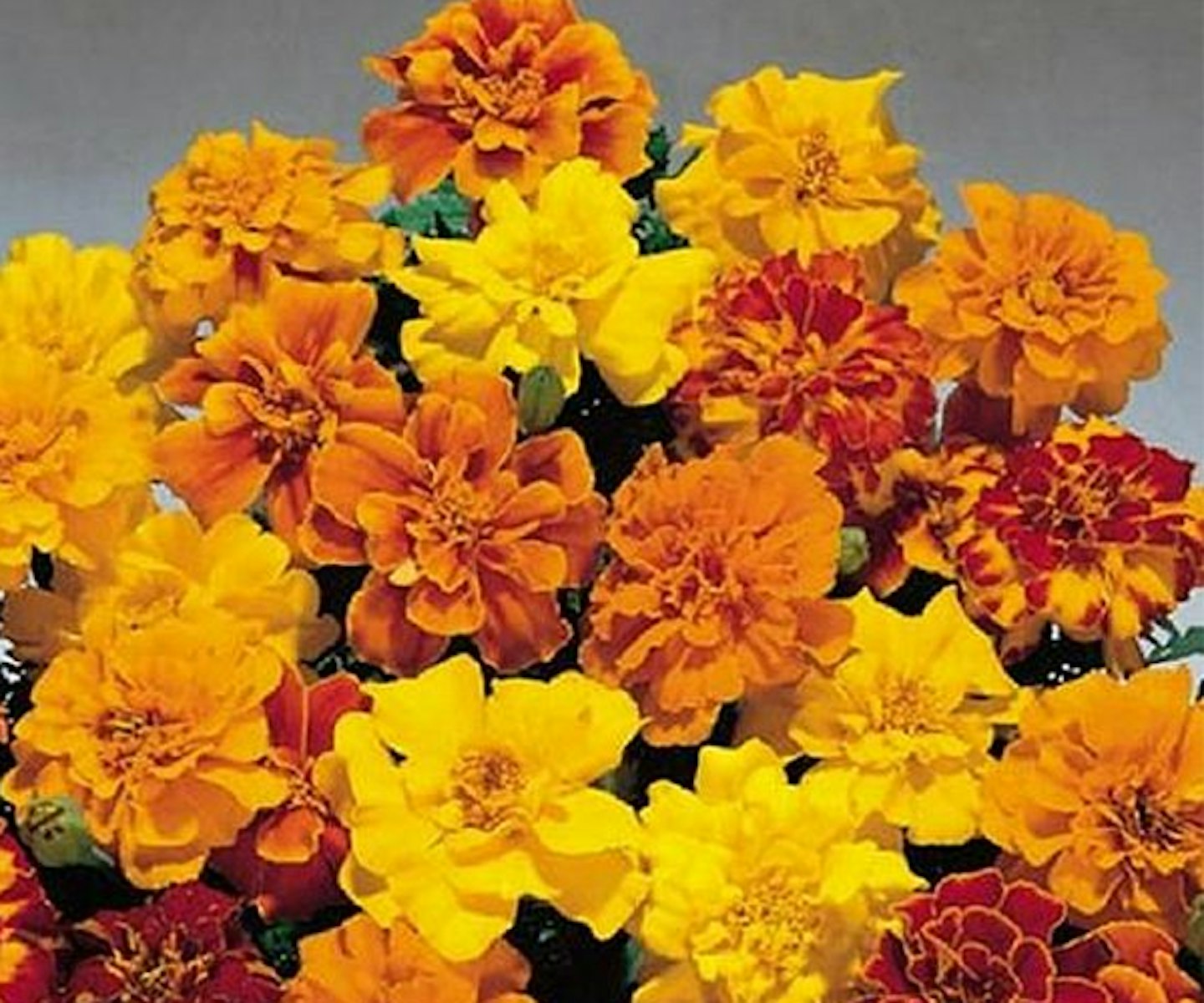
www.suttons.co.uk
Marigolds are long-lasting flowers that quickly bloom and produce large, showy double flowers from June to September. Not only are they vibrant and beautiful, but they deter moles too. Each packet contains around 55 seeds. You can also get garden ready Marigolds here.
The best garden pest liquid repellent treatment
BugClear Ultra is a systemic action insect killer offering a broad spectrum of pest control that protects for up to three weeks. This insecticide product can be used indoors and outdoors on flowers, fruit and vegetables. Just spray the product evenly to wet leaves until just before the run-off. Wait for the spray to dry before handling plants. If necessary, repeat the spray after. It can be used on tomatoes, aubergines (outdoors and greenhouse), peppers (greenhouse), potatoes, and fruit. Allow a minimum of 14 days between final application and harvesting.
Review: "It also is very effective on all insects and black flies. Every other product I have used is not so effective at keeping away black fly, but this does the job excellent product, it seems more expensive than other brands, but it works out the same cost because it is diluted."
The best garden pest repellent treatment for rats and mice
This rat and mice repellent spray effectively deter rodents from your home or garden without killing them. The peppermint oil for rats is a natural alternative to a mousetrap.
Review: "We had a rat in our garden, but I wanted a natural repellant as an animal lover (ALL animals). I sprayed this on our fence and around the hole where the rat goes through to next door's garden! Works a treat!"
The best garden pest repllent insecticide for indoor plants
Houseplants are not exempt from pest attacks, and Baby Bio Houseplant Bug Killer protects your plants with immediate effect. Just spray at the first sign of infestation. It can be used all year round. It is ideal for use in the home, greenhouse, conservatory or even in the garden too.
Review: "I had a problem with flies on one of my household plants. I used this with one application of a thorough spray, and it did the trick. Left it a week, and it hasn't affected the quality of the plants or the leaves. The bottle is so large, so it's great it did the job, but now I left with a huge, nearly full bottle that I don't need. But glad it solved the problem nonetheless."
Ellen Kinsey is a Commercial Content Writer for Bauer Media, working across brands such as What’s The Best, Yours, Grazia and Modern Gardens, specialising in food, health and wellness content.
Subscribe to the What’s The Best Newsletter to keep up to date with more of the latest reviews and recommendations from the rest of the What’s The Best team.
